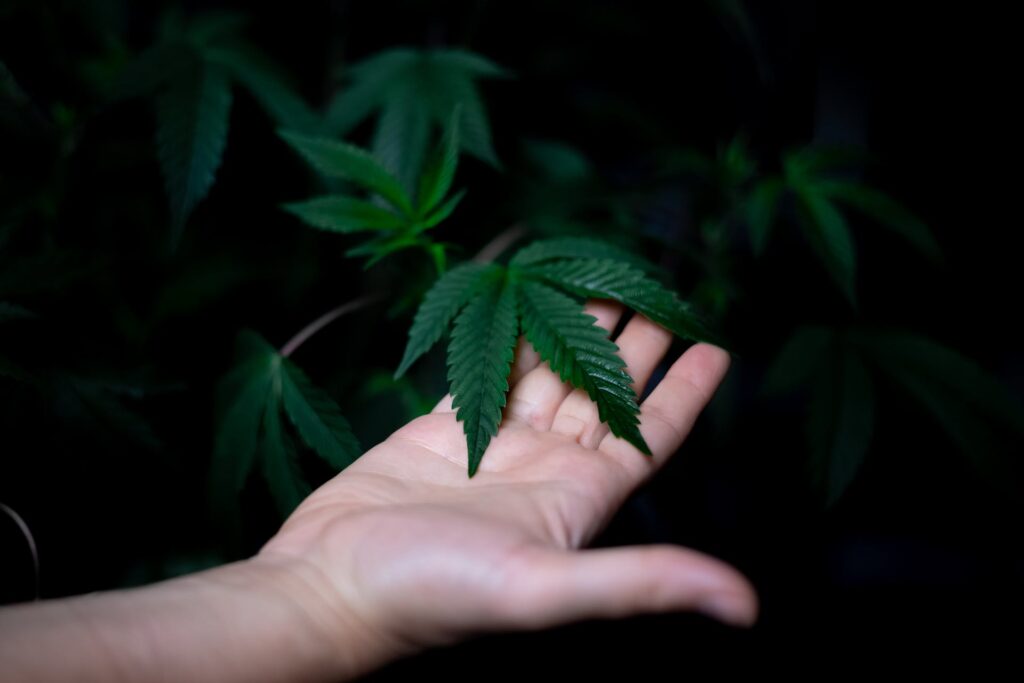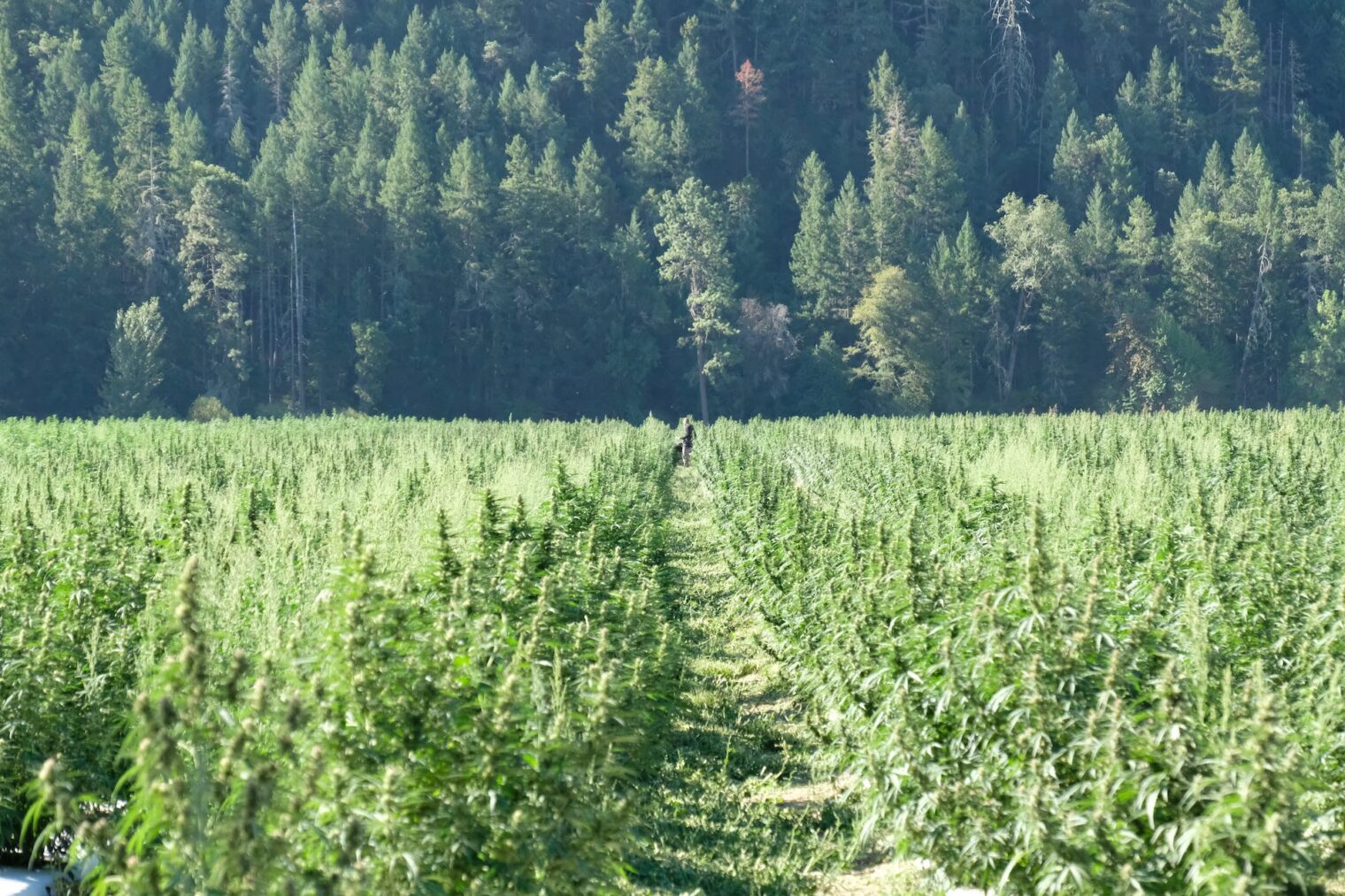Learning the Secrets to Launch a Lucrative Cannabis Farm in Thailand
Unlock the hidden potential of the cannabis farm in Thailand industry and embark on a profitable journey as a cannabis farmer.
Delve into the secrets that will guide you towards success in this thriving market. From selecting the perfect location to ensuring compliance with strict regulations, this article reveals the key steps and considerations for launching a lucrative cannabis farm.
Discover the hidden gems and unleash your entrepreneurial spirit in the ever-growing cannabis farm in Thailand industry.
Cannabis Farm in Thailand: Key Takeaways
– Selecting the right location based on land fertility, water accessibility, and proximity to tourist hubs is crucial.
– Adhering to strict laws governing cannabis cultivation in Thailand and procuring the appropriate permit is necessary.
– Choosing the right cannabis farm in Thailand varieties and essential equipment is essential for a successful farm.
– Implementing sustainable and environmentally-friendly cultivation techniques is important to ensure long-term success.
Cannabis Farm in Thailand Location Selection and Legal Considerations
When considering location selection and legal considerations for starting a cannabis farm in Thailand, it is crucial to choose a site that complies with the strict laws governing cannabis cultivation and ensure proper permit procurement.
Conducting a land fertility assessment is essential to determine the suitability of the soil for cannabis cultivation. Additionally, water accessibility regulations must be taken into account to ensure a reliable water supply for irrigation purposes. It is important to select a location that is not only fertile but also has access to ample water resources.
Compliance with water accessibility regulations will ensure that the farm operates within the legal framework. By evaluating land fertility and adhering to water accessibility regulations, cannabis farmers in Thailand can establish their farms in compliance with the law and optimize their chances of success.
Resources and Infrastructure for Cannabis Farming
To achieve optimal yields, cannabis farmers must diligently invest in and maintain the necessary resources and infrastructure. This includes ensuring regular inspections and timely upgrades are conducted to meet industry standards and comply with legal regulations when building a cannabis farm in Thailand.
The following are essential resources and infrastructure requirements for successful cannabis cultivation:
1. Adequate Water Supply:
Cannabis plants require a consistent and reliable water source. Farmers must invest in irrigation systems and ensure access to sufficient quantities of clean and potable water.
2. Proper Lighting and Ventilation:
Cannabis plants thrive in specific light and temperature conditions. Farmers need to invest in lighting systems that mimic natural sunlight and provide proper ventilation to maintain optimal growing conditions.
3. Nutrient-Rich Soil:
Cannabis plants require nutrient-rich soil for healthy growth. Farmers should invest in organic fertilizers and conduct regular soil testing to ensure nutrient balance and soil health.
4. Security Systems:
Cannabis cultivation requires stringent security measures to prevent theft and unauthorized access. Farmers must invest in security cameras, alarms, and secure fencing to protect their crops and comply with legal requirements.
Understanding and Selecting Cannabis Varieties for a Cannabis Farm in Thailand
Different cannabis varieties, such as Indica, Sativa, and hybrids, offer distinct characteristics and effects, making it crucial for growers at a cannabis farm in Thailand to have a thorough understanding of these varieties to select the most suitable strains for their cultivation endeavors.
Indica strains are known for their relaxing and sedative effects, making them popular for medicinal purposes.
Sativa strains, on the other hand, are known for their energizing and uplifting effects, making them ideal for recreational use.
Hybrids combine the characteristics of both Indica and Sativa, offering a balanced experience.
When selecting cannabis strains, farmers must consider factors such as climate, growing techniques, and desired effects.
Each cannabis strain requires specific growing techniques, including temperature and humidity control, irrigation systems, and nutrient management.
Essential Equipment for Successful Cultivation
Investing in the right amount and variety of essential equipment is paramount for successful cultivation of cannabis, as it ensures efficient operations and optimal plant growth.
Here are four key pieces of cannabis cultivation equipment to consider when you have a cannabis farm in Thailand:
1. Lighting Systems: High-quality lighting systems are crucial for indoor cannabis cultivation. LED lights are commonly used due to their energy efficiency and ability to mimic natural sunlight, promoting healthy growth.
2. Climate Control Systems: Maintaining the ideal temperature and humidity levels is essential for cultivating high yield strains. HVAC systems, dehumidifiers, and ventilation systems help create a controlled environment that fosters optimal plant growth.
3. Irrigation Systems: Providing consistent and precise water delivery is vital for cannabis plants. Automated irrigation systems, such as drip irrigation or hydroponics, ensure that plants receive the right amount of water and nutrients at the right time.
4. Trimming and Harvesting Tools: Properly trimming and harvesting cannabis plants is essential to maximize yield and quality when you have a cannabis farm in Thailand. Tools like trimming scissors, pruning shears, and drying racks help streamline the process and maintain the integrity of the buds.
Sustainable and Environmentally-Friendly Techniques
Implementing sustainable and environmentally-friendly techniques is crucial for minimizing the ecological impact of cannabis cultivation on your cannabis farm in Thailand.
Integrated pest management (IPM) and organic cultivation methods are two key strategies that can be employed to achieve this goal. IPM involves the use of various pest control methods such as biological control agents, crop rotation, and habitat manipulation to prevent pests from becoming a major problem. This approach reduces the reliance on chemical pesticides, which can have negative effects on the environment and human health.
Additionally, organic cultivation methods prioritize the use of natural fertilizers and soil amendments, as well as avoiding synthetic chemicals. These practices promote soil health, biodiversity, and overall sustainability.
Pest Control and Soil Management
A comprehensive understanding of the interplay between pest control and soil management is essential for maintaining the health and productivity of a cannabis farm. Here are four key factors to consider:
1. Integrated pest management (IPM): Implementing an IPM approach involves using a combination of techniques such as biological control, cultural practices, and chemical interventions to manage pests effectively while minimizing harm to the environment.
2. Organic fertilizers: Utilizing organic fertilizers not only provides essential nutrients to the soil but also promotes soil health and microbial activity. This, in turn, helps create a balanced ecosystem that can naturally resist pests and diseases.
3. Crop rotation: Regularly rotating crops can disrupt pest life cycles and reduce the risk of infestation. It also helps maintain soil fertility by preventing the buildup of pests and diseases associated with specific crops.
4. Soil testing and amendments: Regular soil testing allows farmers to identify nutrient deficiencies or imbalances and make informed decisions about appropriate amendments. This ensures that the soil remains healthy and capable of supporting robust plant growth while deterring pests on a cannabis farm in Thailand.
Efficient Logistics and Distribution Systems
Establishing reliable supply chains and implementing efficient tracking systems are crucial for the success of a cannabis farm in Thailand.
Maximizing yield and ensuring product quality are key factors that depend on efficient logistics and distribution systems. To achieve this, cannabis farms must focus on several aspects.
Firstly, they need to establish reliable and legal supply systems to ensure a continuous flow of inputs such as seeds, fertilizers, and equipment.
Secondly, safe and compliant transport methods should be used to maintain product integrity during distribution. Implementing tracking systems at every stage of distribution allows for smooth operation and better inventory management.
Choosing reliable delivery services with various transportation options further enhances efficiency.
Compliance and Legal Considerations in Distribution
Ensuring compliance with regulations and navigating legal considerations are essential for the successful distribution of cannabis products in Thailand. Here are four key points to consider when addressing compliance challenges and conducting a regulatory framework analysis of a cannabis farm in Thailand:
1. Understanding the regulatory landscape: Thoroughly research and understand the laws and regulations surrounding the distribution of cannabis products in Thailand. This includes licensing requirements, labeling and packaging regulations, and restrictions on advertising and marketing.
2. Quality control and testing: Implement robust quality control measures to ensure that cannabis products meet the required standards for safety, potency, and purity. Regular testing should be conducted to verify compliance with regulatory requirements.
3. Supply chain management: Develop a comprehensive supply chain management system that ensures traceability and transparency at every stage of the distribution process. This includes proper documentation, record-keeping, and inventory management.
4. Compliance training and education: Provide ongoing training and education to staff members involved in the distribution of cannabis products. This will help them stay updated on the latest regulations, best practices, and compliance requirements.

Cannabis Farm in Thailand Profitability and Financial Management
The cannabis industry’s profitability and financial management are crucial factors that require careful attention and strategic decision-making to ensure long-term success. Maximizing profitability in the cannabis industry necessitates effective financial planning and budgeting.
This involves analyzing costs and revenues, identifying key profit drivers, and implementing strategies to optimize financial performance. Financial planning entails setting realistic goals, creating budgets, and allocating resources efficiently. It also involves monitoring cash flow, managing expenses, and making informed investment decisions where your cannabis farm in Thailand is concerned.
Budgeting is essential for controlling costs, allocating funds to various departments, and ensuring adequate financial resources for growth and expansion. By implementing effective financial planning and budgeting techniques, cannabis businesses can maximize profitability, achieve sustainable growth, and navigate the challenges of this rapidly evolving industry.
Long-Term Success Strategies for Cannabis Farming in Thailand
Implementing innovative cultivation techniques is essential for achieving long-term success in cannabis farming in Thailand. To maximize profitability and ensure the health of the crops, farmers must focus on effective pest control and profitability strategies.
Here are four key considerations for a cannabis farm in Thailand:
1. Integrated Pest Management:
Implementing a comprehensive pest control strategy is crucial to protect the plants from harmful insects and diseases. This can involve the use of organic pesticides, biological control methods, and regular monitoring of the crops.
2. Crop Rotation:
Rotating crops can help minimize the risk of pests and diseases by disrupting their life cycles. By alternating cannabis with other compatible plants, farmers can reduce the likelihood of pest infestations and maintain the health of the soil.
3. Efficient Resource Management:
Adopting efficient irrigation and fertilization practices can significantly impact profitability. By optimizing water usage and using organic fertilizers, farmers can reduce costs and minimize environmental impact.
4. Market Analysis and Diversification:
Staying informed about market trends and consumer preferences is essential for long-term success. Diversifying product offerings and targeting niche markets can help farmers maximize profitability and adapt to changing market dynamics.
Final Thoughts on Thailand Cannabis Farms
In conclusion, launching a successful cannabis farm in Thailand requires careful consideration of various factors. These factors include selecting the right location, navigating legal regulations, and ensuring compliance with strict laws.
By choosing fertile land with easy access to water, aspiring cannabis farmers can position themselves for success. Additionally, procuring the necessary permits is essential for operating legally.


